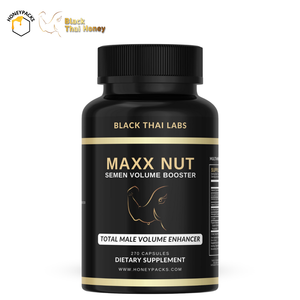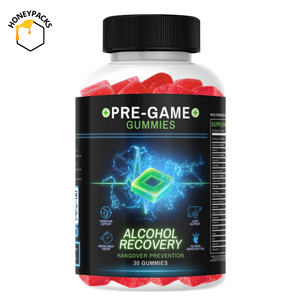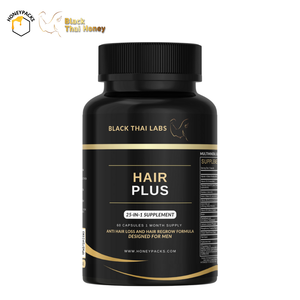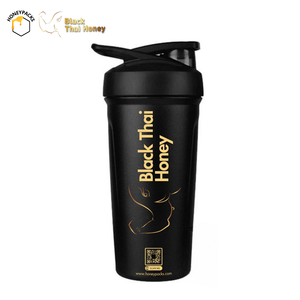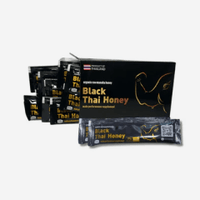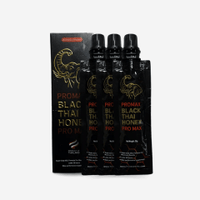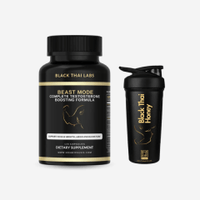Does Ginseng Have Caffeine? Discover What It Really Does
Ginseng does not contain caffeine, but it may still boost your energy. Its natural compounds, ginsenosides, support focus and stamina without the crash, making it a popular caffeine-free alternative in teas, supplements, and male vitality products.
So why are people searching for this in the first place? It’s not just curiosity, it’s a sign of a shift.
-
Health-conscious individuals want clean, consistent energy without the downsides of caffeine.
-
Men exploring natural supplements are seeking performance without synthetic spikes.
-
Caffeine-sensitive people want to avoid anxiety, insomnia, and crashes.
-
Ingredient-checkers are scanning labels for hidden stimulants
-
And many are simply looking for a smarter, steadier way to stay sharp, without reaching for another cup of coffee.
If you’re looking for the full breakdown, keep reading. We’ll explore why so many confuse ginseng with caffeine, how it actually works, and whether it’s the right choice for your daily energy and vitality.
Ginseng Is Caffeine-Free, So Where Does the Energy Come From?
The Power of Ginsenosides
It’s true, ginseng doesn’t contain a single milligram of caffeine. And yet, many who take it report feeling more alert, mentally sharp, and physically energized. That’s because ginseng works through an entirely different pathway.
The active compounds in ginseng are called ginsenosides. Unlike caffeine, which targets your central nervous system and floods your body with adrenaline, ginsenosides help modulate energy by improving blood flow, supporting nitric oxide production, and enhancing oxygen utilization throughout your body.
Rather than spiking your system, ginseng operates more like an adaptogen. It supports your body’s natural ability to respond to stress, whether that’s physical fatigue, mental fog, or hormonal imbalance, without causing jitters, crashes, or overstimulation.
That’s why so many confuse the steady lift from ginseng with a caffeine buzz. But the difference is felt in the aftermath. With ginseng, there’s no sudden drop, no nervous crash, and no dependency. What you get is clean, consistent energy that lets you stay focused and perform at your best, naturally.
If it gives energy, is it secretly stimulating like caffeine? Ginseng doesn’t spike your heart rate, disrupt your sleep, or leave you restless. It helps you feel like yourself, but sharper.
Why People Think Ginseng Has Caffeine
One of the biggest reasons people assume ginseng contains caffeine is because of how it’s packaged and marketed. Ginseng is commonly found in energy drinks, pre-workouts, and teas, but in those cases, it’s usually combined with caffeine or other stimulants.
Take ginseng coffee, for example. Most blends include instant coffee, meaning you're still consuming caffeine, alongside ginseng. The same goes for many popular energy shots and capsules, which mix ginseng with high doses of caffeine, taurine, or guarana.
That’s why you need to read the label. If a product claims to include ginseng, that doesn’t mean it’s pure ginseng root extract. In many cases, caffeine is doing the heavy lifting, not the herb itself.
This can lead to confusion, especially for those trying to avoid caffeine. Many users have been surprised to find out their so-called caffeine-free ginseng drink was packed with hidden stimulants. Always check the source and ingredients if clean energy is your goal.
How Ginseng Works Differently From Caffeine
Ginsenosides vs. Caffeine

Caffeine and ginseng both help with energy, but the way they work couldn’t be more different.
Caffeine is a central nervous system stimulant. It blocks adenosine (your body’s natural sleep signal), then floods your system with adrenaline. The result is a fast, sometimes jittery burst of energy that often ends in a crash.
Ginseng, on the other hand, contains ginsenosides, natural compounds that support your body's circulation, hormone balance, and response to fatigue. Instead of stimulating your brain, ginseng supports physical endurance, sharper thinking, and improved stress response.
You won’t feel a spike. Instead, you’ll notice a more even, sustained sense of energy and focus. This makes it ideal for men looking to perform at their best, without overstimulating their system.
When Ginseng Might Not Be Right for You
Situational Side Effects and Safety Tips
While ginseng is generally considered safe and well-tolerated, it’s not for everyone.
Some people may experience nervousness or sleep disruption, especially with high doses or poor-quality blends. Although ginseng doesn’t contain caffeine, its effect on circulation and metabolism can still feel overstimulating for a small percentage of users.
If you have autoimmune conditions or bleeding disorders, ginseng may not be the best fit. It can also interact with blood thinners, stimulant medications, and certain diabetes drugs. So it’s always a good idea to check with your doctor before adding it to your regimen.
Can ginseng and caffeine together be too much?
Yes. Stacking them may cause restlessness or anxiety in sensitive individuals.
Best Uses of Ginseng for Caffeine-Free Energy
If you're trying to cut back on coffee or avoid the crash that comes with energy drinks, ginseng might be your best ally. It's especially useful during caffeine withdrawal. Many people find that it helps ease the fatigue and brain fog that can hit hard during the first few days off caffeine.
It also works well in the morning or before a workout. Ginseng offers alertness without the jitters, making it a go-to for people who want focus and stamina without overstimulation.
Unlike caffeine, though, ginseng isn't a quick fix. It’s most effective when taken consistently over time. Think of it as a tool for building energy, not forcing it.
If you're looking for stronger performance and endurance, Panax ginseng (also known as Korean red ginseng) is the more potent choice. American ginseng tends to be milder and is better suited for those who are more sensitive to herbal effects.
Honey Packs chose Panax ginseng for a reason. It’s not all about energy, it’s about synergy. Our formula pairs it with black ginger and L-citrulline to support stamina, circulation, and libido naturally, without a single trace of caffeine.
Should You Replace Coffee with Ginseng?
Ginseng and coffee serve different purposes, and which one’s right for you depends on what kind of energy you’re after.
If you want something fast and intense, ginseng won’t give you that same sharp jolt. Caffeine is better for a quick, immediate spike in alertness.
But if you’re tired of the rollercoaster, highs followed by crashes, jitters, or poor sleep, ginseng is the better move. It offers a slower, more stable lift that supports your body rather than forcing it into overdrive.
For men, ginseng also brings added benefits. Beyond energy, it helps support circulation, hormone balance, and sexual vitality, something caffeine can’t offer.
Ginseng Is Caffeine-Free and Performance-Ready
If you're looking to quit caffeine, stay sharp without the crash, or simply feel more energized without relying on synthetic stimulants, ginseng offers a powerful alternative. It supports energy, focus, and stamina, naturally and without the side effects associated with caffeine.
The key is choosing the right kind. Look for pure, standardized extracts, not blends hiding behind flashy labels. And for men who want more than just energy, who want performance, confidence, and hormone support, pairing ginseng with other adaptogens can unlock even greater results.
That’s why we use Panax ginseng in Honey Packs, alongside black ginger and L-citrulline. It’s a clean, potent combo designed to help you show up with strength, clarity, and endurance, without caffeine.
Ready to upgrade your energy? Our Honey Packs might be your next move.
